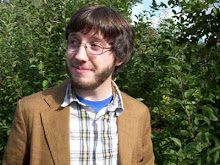This Sunday, after a six year run that brought its characters from Australia to an island, to Los Angeles and the 1970s, pulling in science fiction, big philosophical and religious themes, and more literary allusions than one can accurately count, the show LOST will come to an end. Since I started watching, about halfway through the second season, the show has been my absolute favorite thing on television, a constant source of debate, theorizing, confusion, frustration, and moments that made me stand up from my chair, pulled into the story and the characters in a way I have never before experienced in network television.
The end of LOST is kind of bittersweet for the viewers--I know I would love to see more, but at the same time, the ability of the creators to say when they will end the show has tightened the writing and given the story a lot of dramatic momentum (we all remember what happened in the third season, when they had to fill time). Ever since the end of the third season, the story has been hurtling toward this ending, and this weekend, we get to see if our faith in these writers, actors, directors and producers paid off. Which is appropriate for a show that has faith as one of its ultimate themes.
I think it's more than just the end of a story, though. It's the last of its kind in more ways than one. For starters, it doesn't look like anything else on television; it's filmed on Panavision 35mm film, which is why it looks so cinematic. The score, by Michael Giacchino, is always incredible (including the sounds at the beginning and end of the episodes, a high-pitched crescendo and a sudden bass drum note, respectively). But maybe the biggest difference between LOST and the sci-fi shows that try to piggyback on its success is the literary nature of the story, in two different senses of that word.
The first is the way the writers utilize many literary concepts: effectively embroidering the themes into the episodes, the structure of real-time and flashback, the use of foreshadowing and using lines more than once in different contexts (this was done to great effect this season, but to talk about that would spoil it). The other use of the word literary, though, is why it found such a devoted audience while other shows (The Nine, Flashforward) failed: the characters drive the story. We're interested in the mystery, yes, but what's carrying the plot along is ultimately the characters and the choices they make. And that's what makes the show so rewarding, in spite of the frustration and the cliffhangers and the occasional leap past believability: I care about these characters and I'm invested in them.
Will I be sad to see LOST end? Hell yes, I will. It'll be the end of an era of television. But I also think it's time to go. I hope this finale ends up being one of the great ones in television history, but more than that, I hope it serves these characters and their story well. I could make a lot of predictions and theorize a few more times before the last episode airs, but I think I would rather see where the episode goes. It seems that a big idea of this final season has been getting the characters to "let go," and I wonder if that's telling the audience to see how the season unfolds and trust the writers. They've never failed in a season finale before, and I don't think they're going to do so with the end of the series.
So to end this with my all-time favorite line from the show, "WAAAAALT!!"
No, wait, that's not right.
"See you in another life, brother."
Friday, May 21, 2010
Friday Films: "Maybe We're All Here for a Reason"
Labels:
Catholicism,
Friday Films,
LOST,
Stories,
Television
Subscribe to:
Post Comments (Atom)

No comments:
Post a Comment